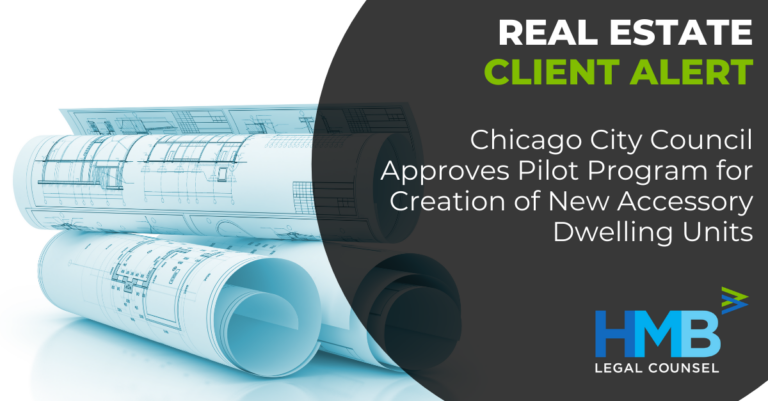WHAT YOU NEED TO KNOW
- The goal of the Ordinance is to establish new residential units that are sustainable and cost-effective while maintaining neighborhood character
- The Ordinance aims to increase affordable housing opportunities without the need for City funding and to help existing property owners manage the financial demands of ownership, including rising property taxes and needed repairs
- Despite the existing ban, Chicago has thousands of non-conforming ADUs that either predate the 1957 ordinance or are being rented illegally
- The new Ordinance will provide a pathway to legalizing the existing illegal units for the residents who already live there
For purposes of the Ordinance, newly permitted ADUs can be generally described as follows:
- Coach houses - accessory buildings containing one dwelling unit and located at least 15 feet behind the rear wall of the principal building on the property
- Conversion units - newly constructed or rehabilitated single dwelling units located in a residential building that is at least 20 years old
Among other requirements:
- Coach houses may not exceed 22 feet in building height or 700 square feet of floor area. Coach houses may not be established if the principal building contains four or more existing dwelling units, or if the addition will reduce any existing on-site, accessory parking required to serve the principal building on the zoning lot. Coach houses may be established without accessory parking serving the coach house
- Conversion units may only increase the density of such residential building by 33% of the number of existing dwelling units; provided, however, that if such residential building contains a single dwelling unit, the density may be increased by one dwelling unit. The most common conversion units will likely be basement or attic apartments. Like coach houses, conversion units may be established without corresponding accessory parking
- Conversion units may not be established on any zoning lot that contains a coach house, and a coach house may not be established on any zoning lot that contains a conversion unit. ADUs may not be listed for short-term rentals on Airbnb or similar platforms and may not be rented on a daily or nightly basis for 31 or fewer consecutive days
The new Ordinance will allow ADUs in the following five pilot zones for a three-year trial period:
- North: covering parts of the West Ridge, Edgewater, Uptown, Lake View, North Center and Lincoln Square communities
- Northwest: covering parts of the Albany Park, Irving Park, Avondale, Hermosa, Logan Square, West Town, Near West Side and East Garfield Park communities
- covering parts of the East Garfield Park, West Garfield Park, North Lawndale and South Lawndale communities
- South: covering parts of the Ashburn, Auburn Gresham, West Lawn, Chicago Lawn, Washington Heights, Roseland, Chatham, Greater Grand Crossing, Englewood, West Englewood, Washington Park and Woodlawn communities
- Southeast: covering parts of the South Chicago, East Side, South Deering and Hegewisch communities
Additional requirements apply to conversion units in the West, South, and Southeast zones. In such zones, building permits will be capped at two ADU units per block per year and buildings with three units or fewer must be owner-occupied at the time of permit application.
In addition to easing restrictions to increase the natural supply of affordable living spaces, the Ordinance requires that if two or more conversion units are added, the property owner shall maintain 50% of the new homes as affordable housing units. An affordable housing unit is one that is affordable to households earning up to 60% of the area medium income (AMI). As of the date of this article, AMI for a family of 4 in Chicago is $54,600.
The City will begin accepting applications for new ADUs on May 1, 2021. Following the initial three-year evaluation period, recommendations will be made for a permanent citywide policy. For more information and specifics regarding the Ordinance and ADUs, please contact a member of HMB Legal Counsel’s Real Estate team.





